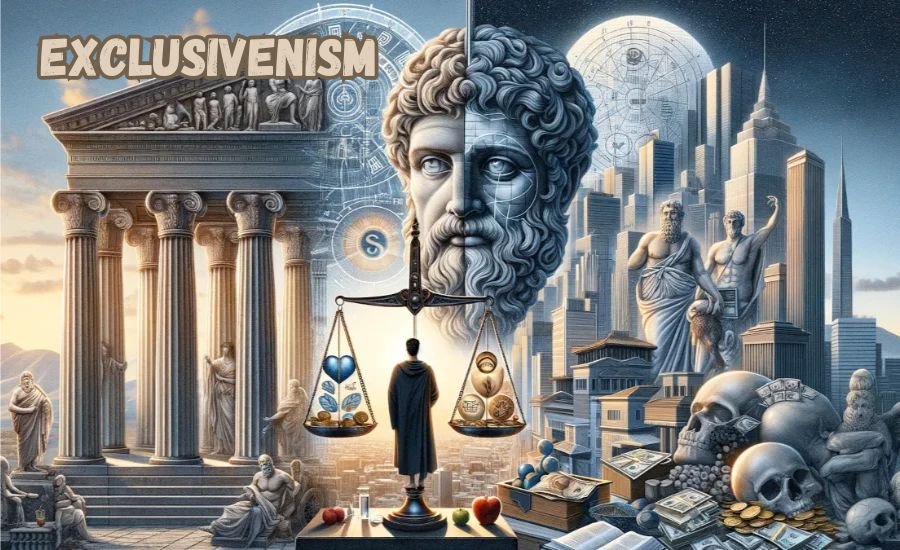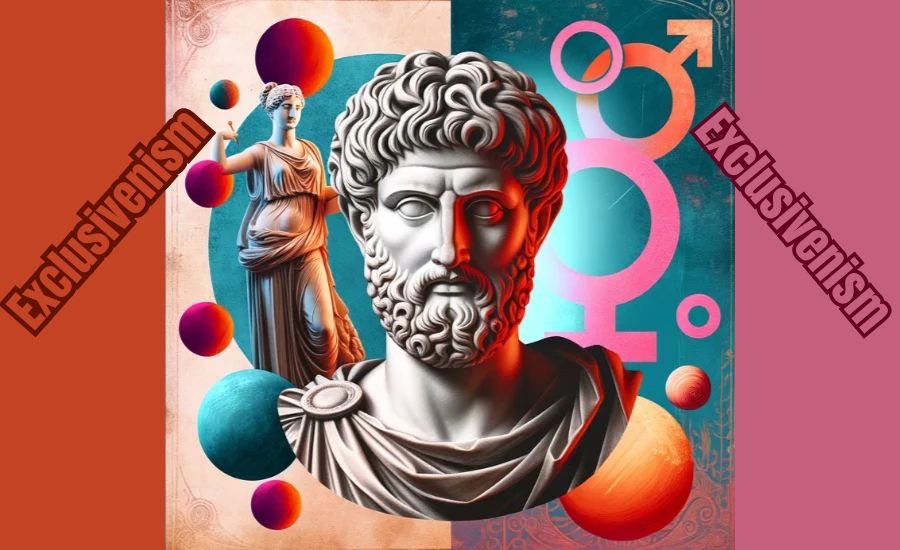In today’s world, exclusivenism has emerged as a significant cultural phenomenon. As people seek connection, they often gravitate towards experiences and groups that promise a sense of rarity and specialness. This article will explore the various dimensions of exclusivenism, its effects on society, and ways we can foster inclusivity in an increasingly divided landscape.
What is Exclusivenism?
Exclusivenism refers to a cultural tendency where certain products, groups, or experiences are perceived as special or elite. This concept creates barriers, defining who belongs and who does not. As we dive deeper into this trend, it’s essential to examine its implications on individual identity, social dynamics, and community building.
The Importance of Understanding Exclusivenism
Understanding exclusivenism is crucial in a world that increasingly values uniqueness. By analyzing this phenomenon, we can identify how it affects our interactions, societal structures, and mental health.
The Allure of Exclusivity
The appeal of exclusivity is evident in various aspects of life. It gives individuals a sense of belonging and importance, often linked to social status. Here are some factors contributing to this allure:
- Sense of Belonging: Being part of an exclusive group can enhance feelings of acceptance and validation.
- Social Status: Access to exclusive experiences often signals a higher social standing, making individuals feel more valued.
- Limited Access: Scarcity increases desire. When something is rare, it becomes more appealing, driving people to pursue it.
Exclusivenism in Fashion and Consumerism

In the world of fashion and consumer goods, exclusivenism manifests through limited editions, members-only clubs, and high-priced items. These strategies are designed to create a sense of urgency and desire.
The Role of Luxury Brands
Luxury brands thrive on exclusivenism. They use scarcity to market their products, often resulting in:
- Limited Edition Releases: Products that are only available for a short time or in small quantities.
- High Price Tags: The cost adds to the perception of exclusivity, making the items more desirable.
Consumer Behavior and Exclusivity
Many consumers are willing to spend more to own something that feels unique. This behavior not only affects personal finances but also drives broader economic trends. Understanding how exclusivenism influences consumer choices can provide insights into marketing strategies and brand loyalty.
Social Media’s Role in Promoting Exclusivity
Social media platforms have amplified the culture of exclusivenism. Here’s how:
Curated Lifestyles
Influencers and celebrities often showcase exclusive experiences that create a sense of aspiration among followers. This can lead to:
- Comparison Culture: Users may feel inadequate when comparing themselves to those who seem to live exclusive lives.
- Desire for Validation: Likes and comments become a form of validation, pushing individuals to pursue exclusivity.
Algorithmic Influence
Social media algorithms tend to promote content that generates high engagement, which often means highlighting exclusive experiences. This creates a feedback loop that further entrenches exclusivenism in online culture.
The Psychological Effects of Exclusivenism
The impacts of exclusivenism on mental health can be profound. While belonging to exclusive groups may boost self-esteem, it can also lead to several negative consequences.
Feelings of Inadequacy
Individuals who do not belong to exclusive groups may experience feelings of inadequacy. This can manifest in:
- Low Self-Esteem: Constant comparison with those perceived as “better” can damage self-worth.
- Anxiety and Stress: The pressure to conform to exclusive standards can lead to mental health issues.
Envy and Resentment
When individuals witness others enjoying exclusive privileges, it can lead to feelings of envy and resentment, impacting overall happiness and well-being.
Technology and Digital Exclusivity

As technology advances, exclusivenism takes on new forms. Digital platforms often foster exclusive communities, creating barriers that can be hard to navigate.
Virtual Exclusivity
Online spaces can create environments where access is restricted, leading to:
- Niche Communities: Individuals may feel pressured to conform to specific standards to gain acceptance.
- Cyberbullying: Those who reject exclusivity may face hostility online.
Balancing Technology and Inclusivity
Technology should be harnessed to promote inclusivity rather than division. By using digital platforms to celebrate diversity, we can combat the negative aspects of exclusivenism.
Read Next: Sanon Cleevenson
The Dangers of Exclusivenism
While the allure of exclusivity may be strong, it’s essential to recognize the dangers it poses to society.
Social Fragmentation
Exclusivenism can create divisions within communities. People may feel alienated or marginalized, leading to:
- Lack of Community Cohesion: When individuals prioritize exclusivity, it can hinder community bonding and support.
- Increased Inequality: Economic disparities can be exacerbated by the exclusive practices of wealthier groups.
The Impact on Relationships
Exclusivity can strain personal relationships. Friends and family may feel neglected if one person prioritizes exclusive experiences over inclusivity.
Creating Inclusive Communities
Building inclusive communities requires intentional actions. Here are some strategies to combat exclusivenism:
Encourage Open Dialogue
Fostering discussions about diversity and inclusivity can help dismantle barriers. Creating safe spaces for sharing experiences allows individuals to express their feelings and perspectives.
Promote Community Engagement
Engaging with various community members can bridge gaps. Local initiatives that celebrate diversity can bring people together.
- Volunteer Programs: Participating in volunteer work can expose individuals to different backgrounds, fostering understanding and connection.
- Collaborative Projects: Encourage partnerships between diverse organizations to promote inclusivity.
Utilize Technology for Good
Instead of using technology to divide, it can be a powerful tool for inclusion. Here’s how:
- Highlight Positive Stories: Use online platforms to showcase diverse experiences and promote narratives that emphasize commonalities rather than differences.
- Create Inclusive Online Spaces: Develop online communities that celebrate diversity and promote belonging for everyone.
Conclusion
Exclusivenism is a complex phenomenon that affects various aspects of modern culture. While it offers a sense of belonging and status, it also creates barriers and divisions that can harm individual well-being and societal cohesion.
As we navigate this landscape, it’s crucial to prioritize inclusivity. By fostering open dialogues, engaging in community-building efforts, and leveraging technology for good, we can work toward a future where everyone feels valued and accepted. Embracing diversity and celebrating shared experiences can help dismantle the elitist barriers that separate us, leading to richer communal bonds and a more connected world.
Hope you find this interesting: GLEP Steam Deck
FAQs
Q: What is exclusivenism?
A: Exclusivenism refers to the cultural trend where certain products, experiences, or groups are perceived as exclusive or elite, creating a sense of rarity and specialness that can lead to social divisions.
Q: How does exclusivenism affect consumer behavior?
A: Exclusivenism influences consumers to seek rare and high-status items, often leading them to pay more for limited editions or luxury brands, as owning such items enhances their social standing.
Q: What role does social media play in promoting exclusivenism?
A: Social media amplifies exclusivenism by showcasing curated lifestyles, leading to comparison culture where users aspire to participate in exclusive experiences highlighted by influencers.
Q: What are the psychological effects of exclusivenism?
A: The psychological effects include feelings of inadequacy, low self-esteem, and anxiety for those who feel excluded, as well as envy and resentment toward those who have access to exclusive experiences.
Q: Can technology contribute to exclusivenism?
A: Yes, technology can foster exclusivity through digital platforms that create niche communities or limit access, leading to social fragmentation and feelings of alienation among users.
Q: How can we promote inclusivity in a culture of exclusivenism?
A: Promoting inclusivity involves encouraging open dialogue, community engagement, and utilizing technology to create spaces that celebrate diversity and shared experiences rather than division.
Q: What are the dangers of exclusivenism in society?
A: The dangers include social fragmentation, increased inequality, and strained personal relationships, as individuals may prioritize exclusive experiences over community bonds and inclusivity.
Follow us for the latest recipe news and updates: TECH DENSER




